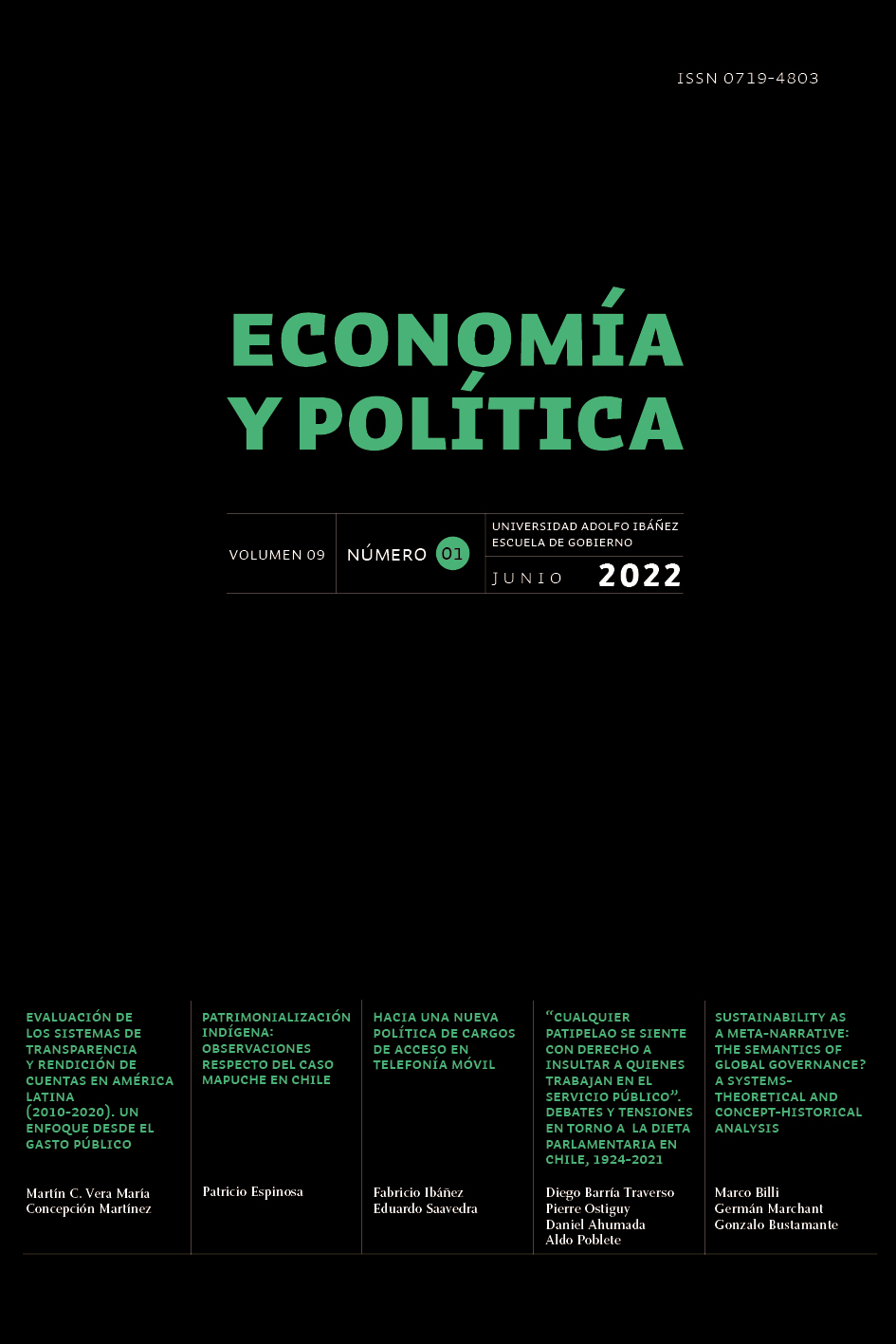“Any tramp feels entitled to insult those who work in the public service”.
DOI:
https://doi.org/10.15691/07194714.2022.004Keywords:
Legislative compensation, Congress, congressional representatives, inequality, representation, ChileAbstract
In 2014, a group of young congressional deputies in Chile proposed reducing legislators’ compensation by 50%. The goal was to solve a legitimacy problem stemming from the high income received by Congressional representatives in a context of severe social inequality. The literature generally states that legislative compensation has been a prerequisite for broadening democracy, as it allows people without income from sources other than daily work (e.g., rent or investments) to exercise a representative function in Congress. However, political science has not pondered the fact that legislative compensation is not always viewed as an instrument in the service of the quality of representation, but can instead become a source of political conflict, especially when its relative magnitude is very significant. This article aims to explore that dimension, through a study of the debates that legislative salaries (and especially their amount) have generated in Chilean society from 1924 to 2021. We argue that, over the course of those ninety years, legislative compensation has evolved from being viewed as a useful tool for incorporating new social sectors into political life to one generating a distortion of representation by giving parliamentarians a standard of living that puts them out of touch with the majority and makes them part of a select high-income minority.


